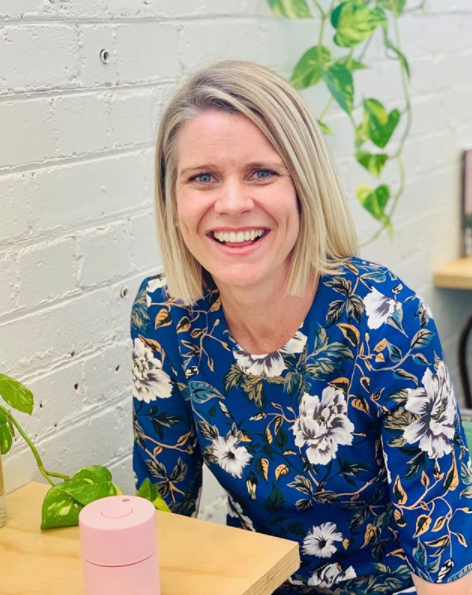Coronavirus: Midwife reveals hidden impact on new mums
When Gold Coast mum Heidi gave birth to her second child, a daughter, a week and a half before her due date on March 14, the rest of the country was preparing to go into lockdown amid the coronavirus outbreak.
Upon reflection, little Sophia’s early arrival was a ‘blessing in disguise,’ Heidi tells Yahoo Lifestyle, as it allowed for her mum and dad to drive from their home in Bundaberg to meet their newest grandchild.

Within a week of their visit, however, strict travel restrictions were introduced and Heidi, her husband, their two-year-old daughter Arabella and newborn Sophia began to self-isolate.
“For three months I didn’t see my parents and they couldn’t see my new baby... Knowing that we couldn’t be close to them was really hard,” Heidi says.
COVID stress and breastfeeding mums
Along with missing loved ones, frantic supermarket trips and adjusting to life in lockdown with two kids under three, COVID-19 also impacted new mum Heidi in an unexpected way.
To her surprise, she began experiencing pain and difficulty breastfeeding Sophia when she was six weeks old — despite having a relatively easy time with her first-born, Arabella.
Sharing her story as part of World Breastfeeding Week, Heidi tells Yahoo Lifestyle that she puts her struggle in part down to the stress and anxiety of the pandemic news cycle.

RELATED:
'Awful' '70s breastfeeding advice on diet and smoking slammed
Coronavirus heartbreak: 'I won’t see my parents for two years'
When her husband, who was working from home, gently pointed out that her habit of ‘constantly’ checking her phone for the latest COVID-19 updates while she was feeding might not be the best idea, it all made sense.
“That was probably why I was starting to have trouble because I was on my phone constantly and wasn’t being present with my baby and focussing on breastfeeding,” she explains.
Hormone havoc
Tamworth-based registered nurse and midwife, Edwina Sharrock (who is not Heidi’s midwife) was able to offer insight into the physiological effect of stress — whether coronavirus-related or otherwise — on breastfeeding.
“When you’re stressed you create cortisol, so your adrenaline increases, your palms feel a bit sweaty, you might have a bit of a headache, your heart’s racing — that’s like the [opposite] of what you want when you’re breastfeeding,” Edwina tells Yahoo Lifestyle.
“The cortisol and adrenaline cause the oxytocin — which we call our ‘calm hormone of love’, a beautiful breastfeeding hormone — to essentially ‘run away,’” she adds.

While Edwina cautioned that it’s not a simple case of ‘stressed mum, stressed bub,’ she did highlight how ‘in tune’ babies are with their mothers and that a stressed mum may, for example, have a lower milk supply.
Her advice? “Put the phone down, have a peppermint tea and really just look at how you’re taking care of yourself; regular rests, light exercise, going for a walk out in the sunshine, eating well, staying hydrated,” she says.
“They’re the things that mums need to be focussing on. I know we’re in the middle of a global pandemic and that comes with so many stressors [...] but that’s not going to help you on your feeding journey,” she adds.
Despite chatting with Yahoo Lifestyle in separate interviews, Heidi echos Edwina’s advice:
“Mums need to focus on themselves right now — yes, there’s lots going on but if we can just focus on our baby when we’ve got that special time to breastfeed and then we can get back to ‘Okay, what’s happening in the world?’” she says.
Seeking help
With COVID-19 raging on, Heidi admits that issues with breastfeeding Sophia were ‘the last thing I thought I had to think about’; outside of a pandemic, she thinks she would’ve noticed she was having a bit of trouble earlier on and reached out for help sooner.
In the end, Heidi got in touch with her sister-in-law who is a counsellor with the Australian Breastfeeding Association, who helped her get back on track.

But that’s not the case with many other struggling Aussie mums. According to new research conducted by Pure Profile in collaboration with Philips Avent, almost a third of the 1,000 nursing mothers surveyed reported that they’re embarrassed to discuss their feeding issues because of societal pressures.
“There’s still this shame around if you’re struggling or having a difficult time feeding and that’s where a lot of stress comes from,” Edwina says. “We need to talk about it more.”
A mum of two herself, Edwina is open about her own difficulties with feeding her second bub and how the feelings of ‘isolation’ and ‘embarrassment’ prevented her from seeking help for ‘quite a long time’.
If, unlike Heidi, you don’t have an expert sister-in-law on speed dial, there are other avenues to getting help and advice: many GPs are offering phone or video appointments, the Australian Breastfeeding Association has a 24/7 helpline and there are online resources available on state department websites.
Pandemic or not, Edwina’s top tips for new parents are:
educate yourself before your little one arrives
ask for help early and stick with that source of support
be wary of treating so-called ‘Mummy blogs’ as a one-stop-shop for information
surround yourself with people who are supportive of your parenting decisions
always give yourself six weeks to get used to being a new parent
Click here to sign up to our daily newsletter to get all the latest news and hacks. Or if you have a story tip, email us at lifestyle.tips@verizonmedia.com.

 Yahoo Lifestyle
Yahoo Lifestyle 



